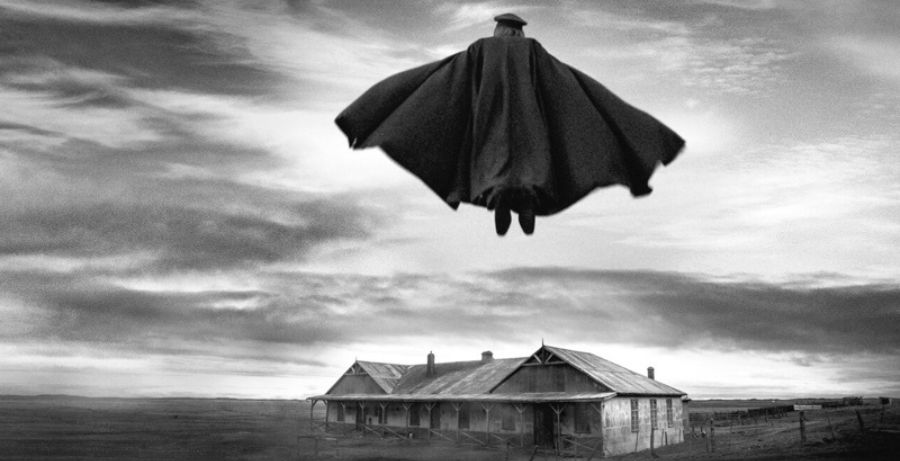Augusto Pinochet has lived a long life. Peasant, soldier, brutal dictator, husband, and father, these are all hats the man has worn. But now, having stalked the world as a vampire for over 250 years, Pinochet is ready to die. But as he prepares to finally slip from this world, someone stalks the streets of a nearby Chilean city, ripping out hearts and drinking blood. Concerned that their father is returning to the hunt, which could drag them all into the spotlight again, his five children visit the home he shares with his wife and trusted butler to settle his final affairs in El Conde, directed by Pablo Larraín and written by Guillermo Calderón and Pablo Larraín.
The tale surrounding Pinochet’s last days that this movie weaves is an interesting one. Its pacing and narrative approach harkens back to the classic vampire tales, despite much of this one’s subject matter veering off from those stories of the monsters of the night hunting their prey. Augmented by a black-and-white visual presentation and a soundtrack that further recreates the tone of classic horror tales. Once it gets past a narrated opening that spends far too much time chronicling the main character’s past, El Conde skillfully grabs the viewer’s attention as they draw them into the aged vampire’s family struggles. However, it often fails to hold onto the attention it initially demands of the viewer.
While there are moments where the vampires go on the hunt, far more of the film’s 1 hour and 45-minute runtime is deep in the family’s squabbles. While there are moments of entertainment to be found here as a couple of the family members bear personalities bordering on the ridiculous, overall, El Conde‘s family drama is not enough to support the low-key chilling ambiance the film initially sets up.

The final element of the production’s larger narrative is an accountant named Carmen who is summoned to the Pinochet home to help straighten out the family’s finances so the father’s money can be fairly split upon his death. Her presence in the story, from interviews with the various family members concerning their history to her instant rapport with the family patriarch, provides the film with most of its best moments. Through her presence in the film, the narrative peels back the layers of the absurd that surround the family for the viewer to see.
It is also through Carmen that the film delivers a spectacular cinematic sequence. I can’t go into details for spoiler reasons, but the sweeping breadth and scope of the moment is a wonderful display of how simple yet elegant cinematography can be. Coupled with a graceful musical accompaniment, the moment distills a sense of joy and wonder, even though the viewer will likely be left with a mixed reaction to these feelings given what proceeds the sequence.
While the movie often drags in the second act, the film’s finale delivers some unexpected twists as it ties up the various plot threads it has introduced. One unexpected revelation in particular surprised me, as the Pinochet family is revealed to have connections to a historical figure. That this individual was selected to be a vampire was humorous, as I feel like many would not be shocked by it if it was revealed to be the case in the real world.
El Conde delivers a bit of farce into the vampire genre. While it struggles at times, it does deliver enough classic energy and surprising moments to be a worthwhile viewing experience for the right fans of film.
El Conde is streaming now on Netflix.
El Conde
-
Rating - 7/107/10
TL;DR
El Conde delivers a bit of farce into the vampire genre. While it struggles at times, it does deliver enough classic energy and surprising moments to be a worthwhile viewing experience for the right fans of film.







